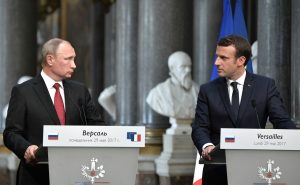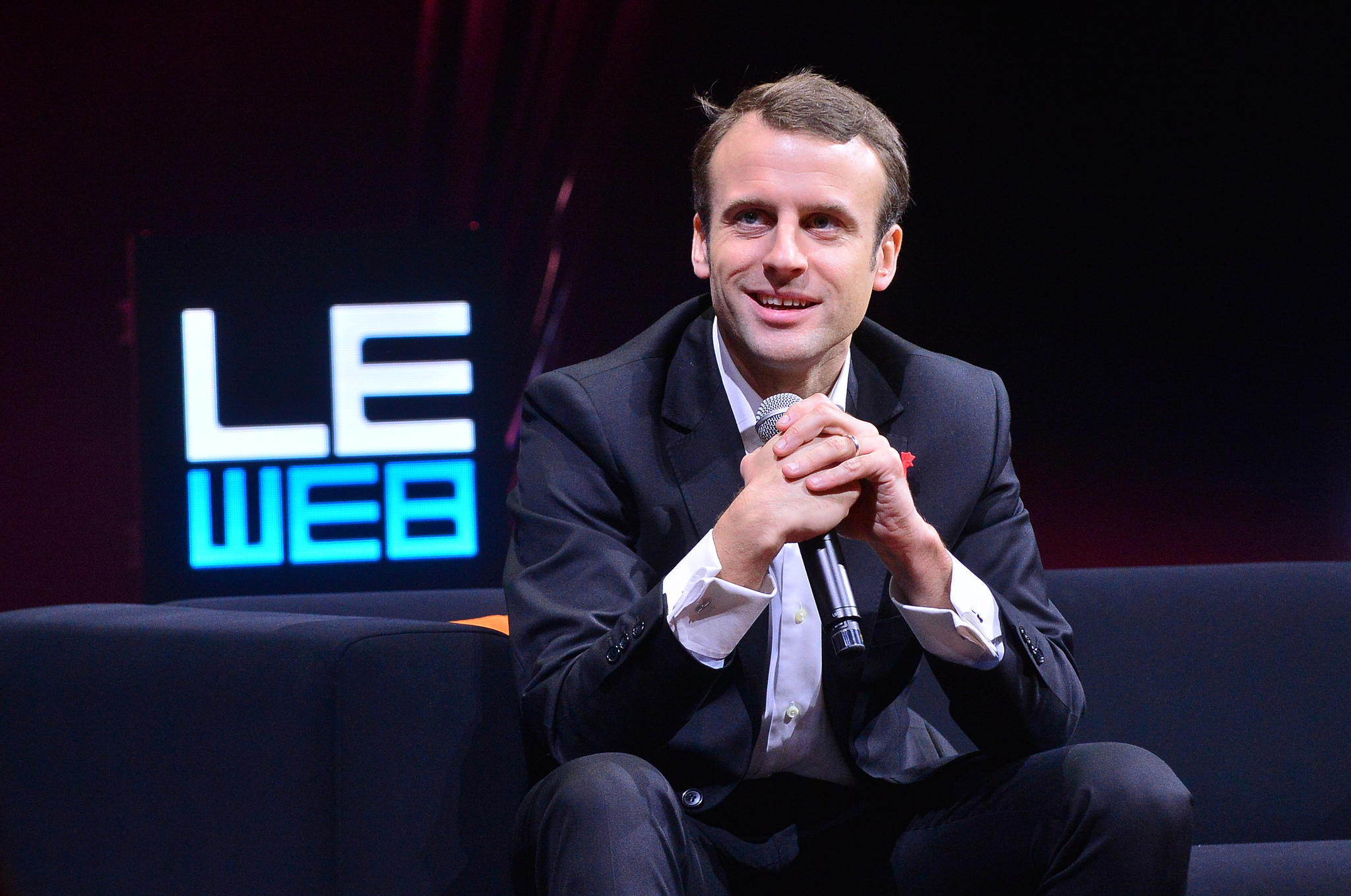Emmanuel Macron’s political career has been an exercise in contrasts. He is a scholar who rose to political prominence through the gilded path of the French elite, but remains a novice to party politics. Despite the historical strength of France’s left and right, he has built his party, En Marche!, into the country’s first notable center space. The party, while lacking establishment within the French political system, has shown strength. Macron, as the head of En Marche!, won the presidency in May, and the party went on to win a majority in the June parliamentary elections. As France finds itself with a president unlike any other in the Fifth Republic’s history, the victories of Macron and En Marche! represent an unprecedented cry for change and the reformation of the traditional two party system. Despite his successes, however, Macron will begin his presidency facing a number of significant challenges.
Macron has inherited a nation in dire need of economic overhaul. With France facing a sustained unemployment rate of about 10 percent, former president François Hollande’s failure to reorganize the labor market has left many in the French electorate wondering whether Macron can successfully institute reform. Although Macron’s policy agenda does not differ substantively from that of Hollande’s, his one-of-a-kind image, unique approach to cooperation, and strong sense of political opportunism offer him numerous opportunities to galvanize his newly-created center space and explore political avenues that were closed to Hollande.
THE INSIDE BREAKS OUT
Macron represents a blend of the insider and outsider persona, a man with the expertise to lead but the independence to avoid the gridlock of party politics. Educated at Sciences Po and the Ecole Nationale d’Administration, Macron worked in investment banking at the prestigious Rothschild Bank and was later appointed Minister of Economy, Industry, and Digital Affairs in Hollande’s cabinet. However, he never held elected office and resigned from the Socialist Party one year ago to begin his En Marche! Party, newly renamed La République en Marche (La REM). The move distinguished him from numerous French politicians who hesitated to relinquish the two-party system and establish an independent platform.
Suzanne Berger, a professor of political science at MIT and director of the MIT-France Program, argued in an interview with the HPR that Macron’s decision to situate himself in the center of the ideological spectrum indicates the advent of a truly novel French political landscape. “In the past, people running from the center of France have failed.” This historical precedent “makes Macron’s success a radically new phenomenon within France.” Berger cited François Bayrou, who ran as a centrist candidate in the 2002, 2007, and 2012 presidential elections, but withdrew from the 2017 election in February to form an alliance with Macron.
DIFFERENT AND THE SAME
Macron’s policy agenda may not be as revolutionary as his public image would imply. He has detailed few specific plans for the country’s struggling economy, but his statements so far do not veer too far off key initiatives proposed during Hollande’s term.

Celebrations at the Louvre following Macron’s victory. May 7, 2017.
Throughout his campaign, Macron pledged to lower regulatory barriers that prevent industries from producing at their full potential. In 2013, the Hollande administration expressed a similar desire with The National Pact for Growth, Competitiveness, and Employment, a law which increased access to funding for business, supported research and development, and streamlined procedures for international investment. Specifically, the bill created a competitiveness and employment tax credit for small/medium sized enterprises, lowered the corporate tax rate, created a Public Investment Bank, and renewed funding for industry partnerships known as innovation clusters.
Macron has promoted the idea of decreasing bureaucratic roadblocks in the labor market, and has expressed his desire to create more flexibility for employees within the confines of the 35-hour work week. These proposals bear numerous similarities with the 2015 Law on Economic Growth and Activity, or Macron Law. The legislation, which Macron championed as Minister of the Economy, makes it easier to lay off workers without complex severance packages, allows some shops to open on Sunday, and grants employees greater freedom in creating their work schedules. Despite advocating in favor of the law, Macron still sought more ambitious changes. “One of the reasons why Macron left [the Socialist party] was that he never really had a chance to put through the larger reform policy that he was proposing with respect to a performance labor market,” Berger said.
Serious economic reform in France, however, has proven difficult to implement. The Macron Law lacked the widespread support it needed to gain sufficient votes in the National Assembly, and was destined to fail as soon as it hit the floor of the lower house. In response, Hollande invoked Article 49 of the French Constitution, which allowed the bill to bypass the National Assembly and head straight to the Senate, where it passed, enraging those who saw Hollande’s decision as an affront to democracy. Although a more ambitious reformer than Hollande, Macron may find it comparatively easier to implement his agenda. La REM won an astonishing 350 seats in the parliamentary elections with its centrist ally, the Democratic Movement. While Macron’s proposals may struggle to gain favor with the more extreme fringes of the left and right, his party’s baseline level of support within the legislature suggests that it will not be necessary for Macron to use the constitution’s most powerful weapon to strong arm the National Assembly.
TO STEP FORWARD, LOOK BACK
France’s economy is beginning to exhibit signs of recuperation, but the persistently high unemployment rate continues to emphasize the failure of Hollande’s policies. If Macron’s policy objectives are similar to those of his predecessor, what factors will allow him to push his agenda forward in a way that Hollande could not? Beyond his image, the answer lies in French political culture and the disarray of Hollande’s Socialist Party.
Moíses Naím, former Executive Director of the World Bank and now a Distinguished Fellow at the Carnegie Endowment for International Peace, told the HPR that Macron’s character will play a far more important role in his success than any specific policy initiatives. “People in France tend to vote for people––individuals matter more than ideas,” Naím said. “In the first round of the election, it was true that the policy proposals of Marine Le Pen were abhorrent to a lot of voters who went for Macron just to prevent Le Pen from reaching the presidency.” Policy differences were important, Naím argued, but what mattered more to the electorate was Le Pen’s brash personality, history with her father, and trajectory as a political figure.

Macron and Vladimir Putin at a joint news conference, May 2017.
The public also perceives Macron as far more ethical than Hollande. In his recent showdown with President Vladimir Putin of Russia, Macron directly addressed Syria, the repression of gay men in Chechnya, and fake news. His frank speech was a savvy political move which was “applauded by the world,” according to Naím. In comparison, Hollande’s romantic escapades while in office left a sour taste in the mouths of French voters, many of whom wish to see the return of dignity to Élysée Palace. “Macron was pretty clear from his very first staging of his victory night at The Louvre to his first day in office that he wanted to restore authority to the Office of the President,” said Berger. She said that both Hollande and his predecessor, Nicolas Sarkozy, had degraded the esteem of the office during their tenures.
Beyond his personal ability to appeal to French political culture, Macron has surrounded himself with a party that, while ideologically diverse, shares his commitment to reform. The factionalism that plagued the Socialist Party prevented Hollande from garnering widespread support for his policy initiatives, a dynamic which effectively condemned his legislation to failure before it reached the floor of the National Assembly.
In an interview with the HPR, Arthur Goldhammer of Harvard’s Center for European Studies emphasized that the left-wing factions of the Socialist Party, or les frondeurs, “revolted against Hollande’s policies” and were appalled by his use of Article 49 to pass Macron’s Law, a source of tension which contributed significantly to Hollande’s inefficacy as president. “The lesson that Macron took from that was that it was going to be impossible to find a compromise between those factions. Instead, he’s going to try to build a different coalition that exists outside of those uncooperative groups,” Goldhammer said.
CONFLICT IN COMPROMISE
Macron’s desire for cooperation will not be met without difficulties from inside his own cabinet, a threat far more pressing than his party’s shaky infrastructure. Macron drew a number of key members of his administration from other political parties, a move which recognized the need to collaborate with France’s existing political institutions. However, this ideological diversity is likely to result in clashes of opinion and disagreements as to how the cabinet should govern. “There are tremendous divides between someone like Prime Minister Édouard Philippe, who doesn’t care much for environmental issues, and the Minister of Environment Nicolas Hulot, one of the most ardent supporters of environmental reform,” Berger said. “It’s hard to say how this group of people will govern together.”
When Macron won the election, there was widespread concern as to whether or not his party was capable of claiming more than a handful of seats in the June parliamentary elections. However, with the Socialist Party plagued by internal divisions and the Republicans reeling from François Fillon’s failure to reach the second round of the election, it was hardly a challenge for Macron to sweep the National Assembly. Macron’s largest opposition bloc is the Republican-led right, which holds 137 seats. The Socialist Party lost 287 seats and emerged with just 44, while The National Front, led by Marine Le Pen, clinched 8 seats. Minority parties have little choice but to work within the confines of La REM’s mandate, but for Macron, the legislative victory could descend into chaos if he fails to find commonality and foster collaboration within his massive bloc.
Macron must work to build a broader support base among everyday voters to compensate for La REM’s somewhat shaky coalition, a task which could be made easier by his strong social media presence. The media, enamored by Macron’s youth, played an important role in sensationalizing his marriage to his ex-teacher and helped parliamentary candidates ride on the coattails of his presidential victory. When asked about the relationship between anti-establishment candidates such as Macron and social media, Naím said that technology and the Internet are “not compensating fully for a lack of political machinery on the ground, but surely are helping candidates that don’t have political infrastructure.”
Macron is, in many ways, a permutation of the traditional two-party system. His public persona juxtaposes his political background and policy agenda with an extraordinary electoral victory and style of governance. His election has solidified a political culture based on personality, but he is still faced with the challenge of using his center space to implement serious reform in France. According to Berger, “whether that political space in the center is really possible to build, and whether it’s really possible to create action, remains to be seen.”
Image credit: Flikr/OFFICIAL LEWEB PHOTOS // Wikimedia/Lorie Shaull // en.kremlin.ru/President of Russia
